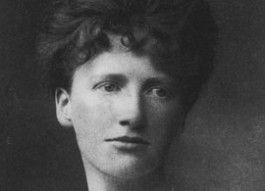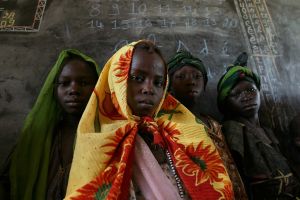
In Sub Saharan Africa, Africa 33 million children don’t attend school and 18 million of them are girls. Educating girls in one of the biggest issues in Africa. When girls are educated they remain in the village and ensure their children’s education, however when boys are educated they often leave their village to travel to the city. A girl born in Sierra Leona, is more likely to marry before the age of 18 than she is to finish high school.
Unfortunately, only 16 percent of the girls complete high school. Boys are sent to school more than girls, because they are more likely to finish school and get a job and eventually financially take care of women and their children. Girls lack opportunity to receive an education because of little to no resources for feminine care. Many families can’t afford pads, so when girls menstruate they stay home.
“In my house there are now eight girls who are menstruating and then there is my mother,” Tierra Sarr, Sierra Leona student, said. “It is very expensive for my family. When we can’t afford pads, I stay at home and miss school. This upsets me very much because even though my friends bring my homework to me, I still struggle to catch up.”
Sarr is one of many girls who face this issue. The Subsaharan African Vitality for Education, otherwise known as the SAVE, volunteers to provide financial resources for girls in Africa. SAVE sells bracelets made by the Sierra Leone girls, here in the United States. SAVE then sends 100 percent of the proceeds to SAGA schools to help ensure education for girls. SAVE believes that every child deserves a future and their lives, voices, and future potential should be fiercely protected at all costs. Their mission is to inspire breakthroughs in the way the world treats children and to achieve immediate and lasting change in the children’s lives.

SAVE was founded in 1919, by Eglantyne Jebb, who was a British social reformer. In the United States, education is a privilege. Its normal for both boys and girls to receive an education up until 12th grade and often, even college. Lack of feminine care isn’t as much of an issue in the U.S. as it is in Africa. Most families are fortunate enough to afford feminine care products and there are organizations in place to help those who can’t. Many schools also provide feminine care for students.
“It’s really sad that we take school for granted here in the U.S.,” Gary Thomas, recent college graduate, said. “I know there have been many times where I hoped for my professor to cancel class. I’ve been attending school since pre-k, so it never occurred to me that it is a privileged and that there are kids who can’t attend schools due to one small factor. It’s upsetting to hear that these girls don’t have a right to education like we do. This is definitely a gender equality issue as well.”
Education rights remains an issue for many children all around the world, especially in Africa. Many students in the U.S. cross their fingers and hope for classes to be canceled, while girls in Africa hope for the day they can attend school without any interruptions. Eglantyne Jebb once said, “Change is within reach if we have courage, determination, imagination, and effective organization. With awareness and donations, change can be made in Africa. For more information on how to help or to donate to the SAGA girls visit www.savethechildren.org.za



